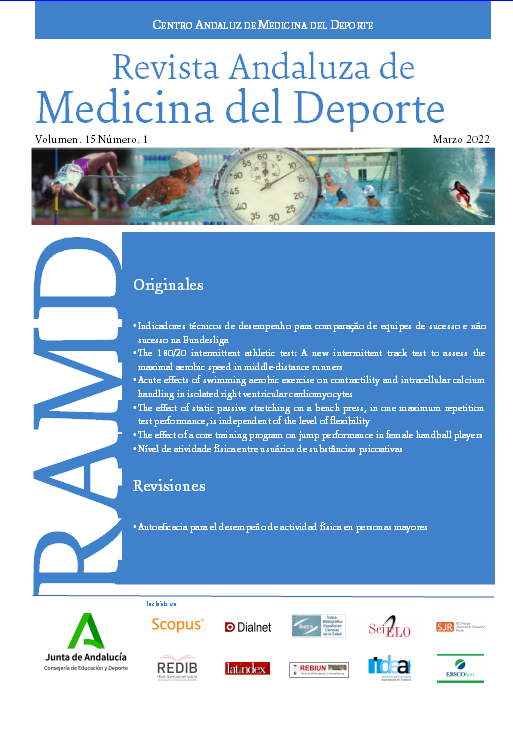The effect of static passive stretching on a bench press, in one maximum repetition test performance, is independent of the level of flexibility
Abstract
Objective: The aim of this study was to investigate at different levels of flexibility the influence of static passive stretching on bench press one maximum repetition test.
Method: Eleven men (26.09 ± 4.2 years, 81.69 ± 13.94 kg, 1.70 ± 0.05 m) were evaluated in flexibility using Flexitest and goniometry test classified according to their flexibility levels (small and upper middle levels) and joint range of motion (deficit levels), as well as performed the one maximum repetition test in the following experimental protocols: without previous stretching and with stretching 10, 20 and 60 seconds before the test.
Results: The results indicate that 64% demonstrated a low level of flexibility and 36% with a higher average level. In both, there was no significant difference in load: A0s (72.43 ± 21.10Kg vs 66.25 ± 19.02Kg); A10s (72.29 ± 20.25Kg vs 67.25 ± 20.35Kg); A20s (73.43 ± 20.78Kg vs 67.75 ± 18.23Kg) and A60s (73.29 ± 19.35Kg vs 68 ± 19.25Kg). ANOVA for repeated measures showed that no significantly different the maximum strength between groups the protocols of static passive stretching tested.
Conclusion: It was concluded that passive static stretching times lower than 60 seconds, in accordance with the current recommendations, do not interfere in the neuromuscular performance of men in the one maximum repetition test, in the bench press independent of their level of flexibility.


